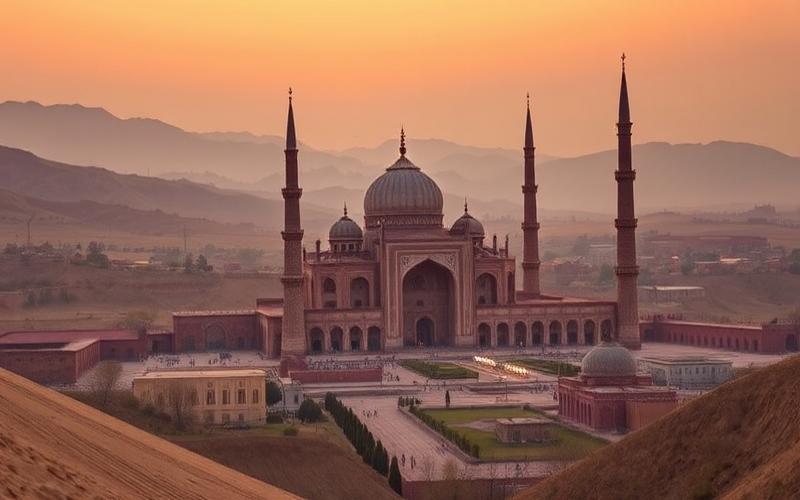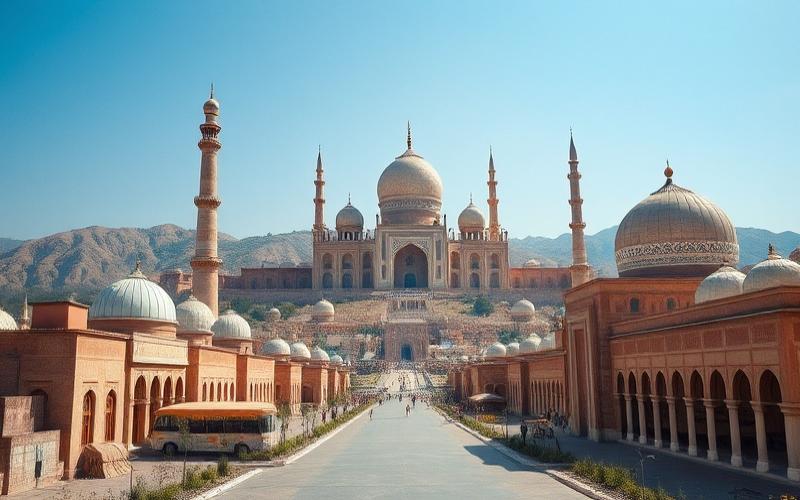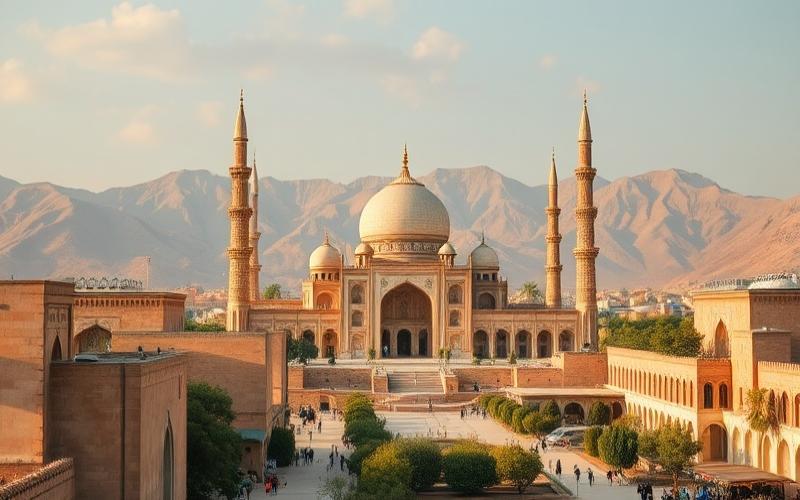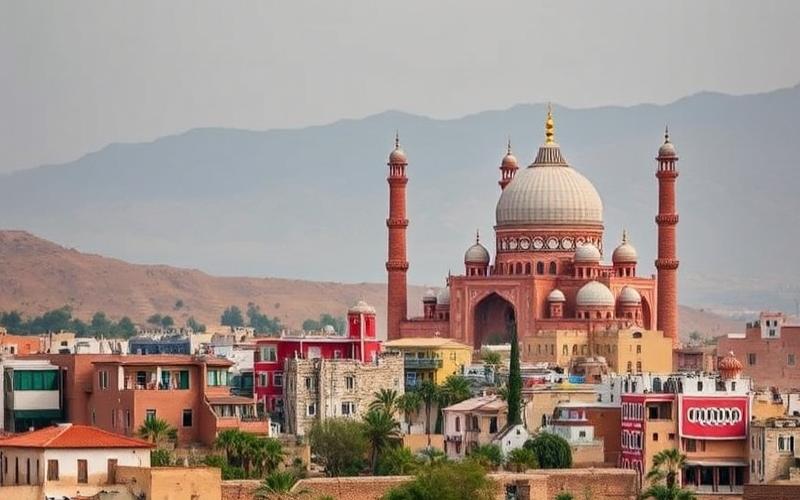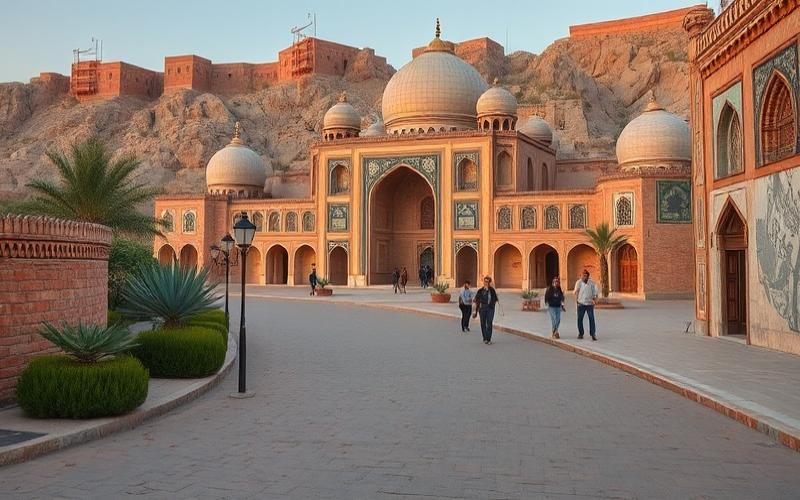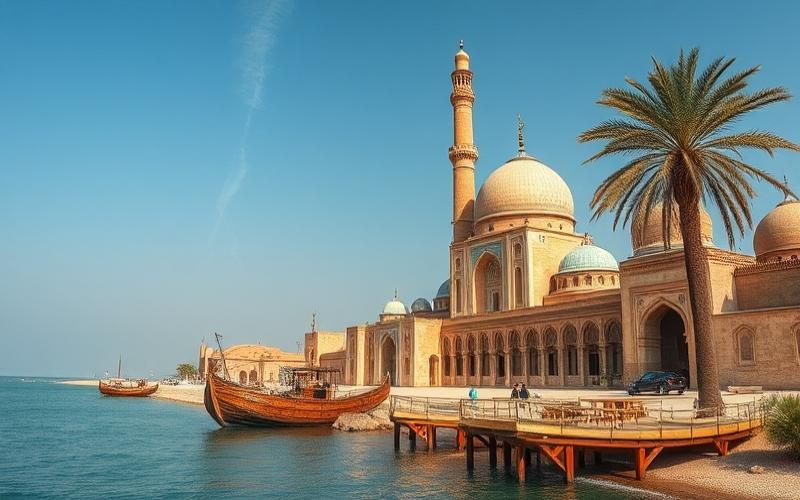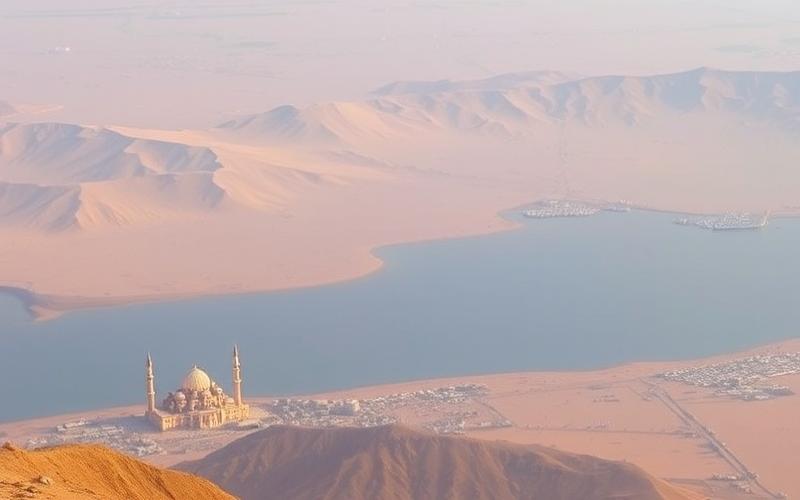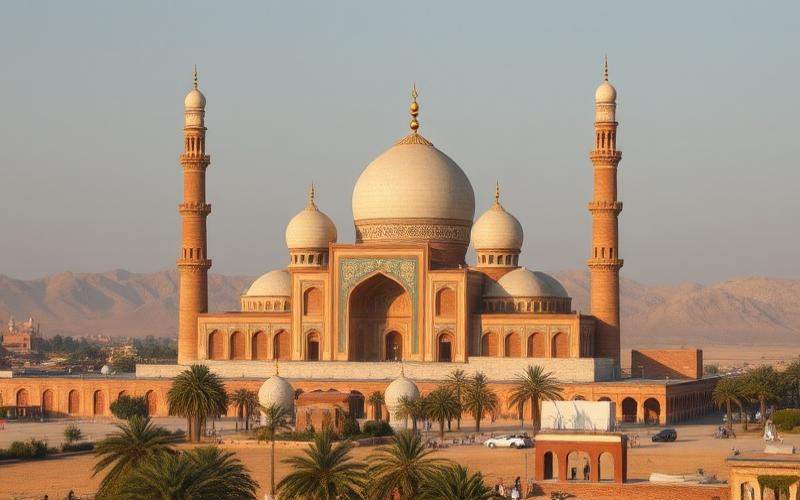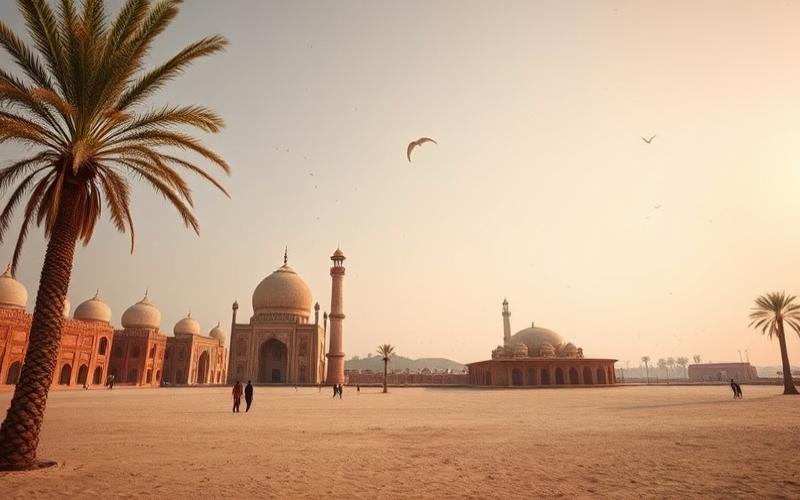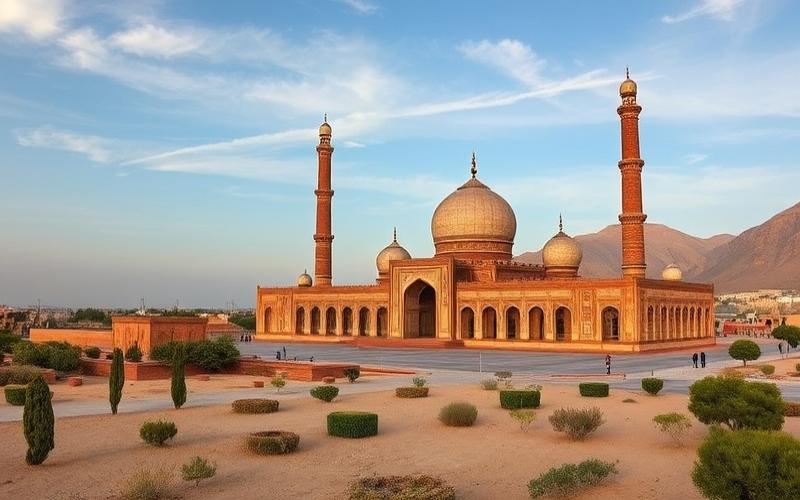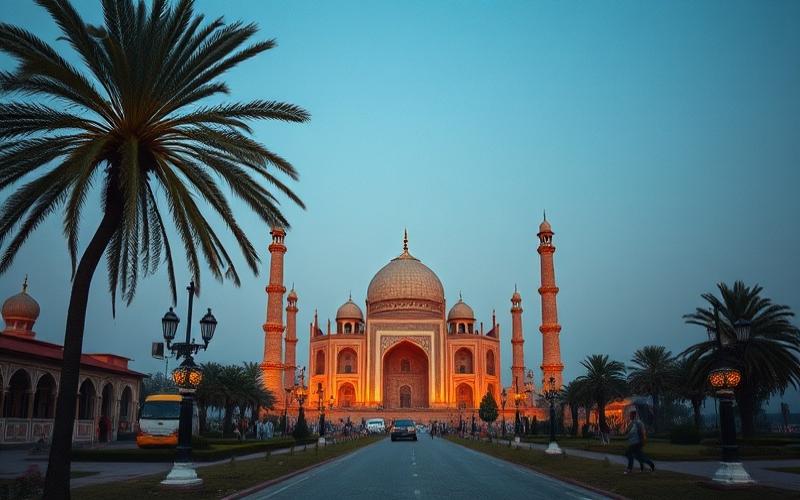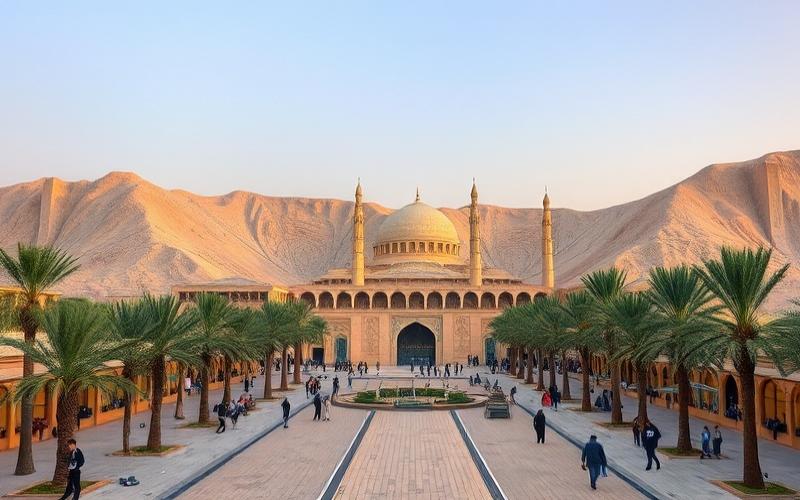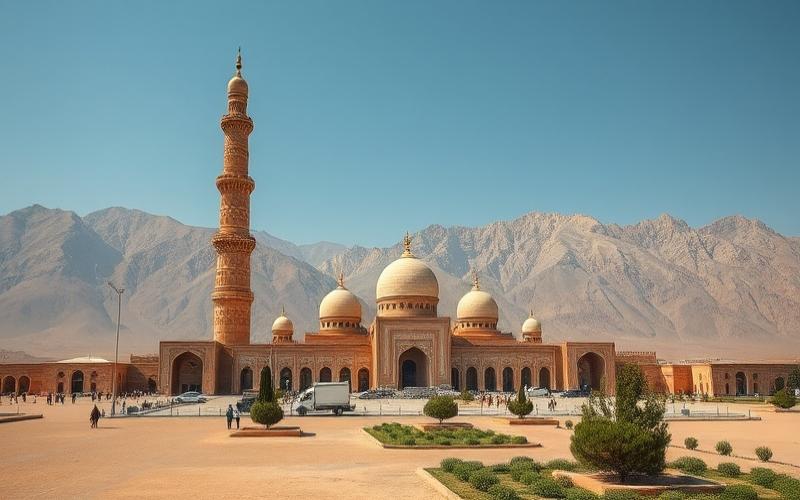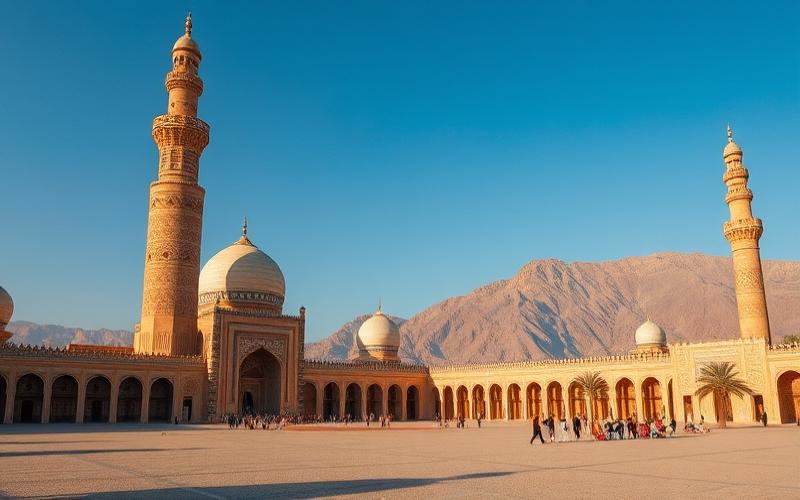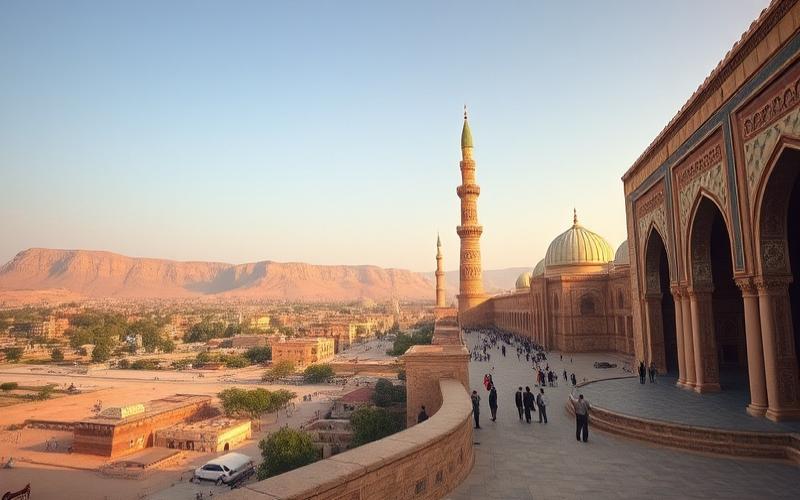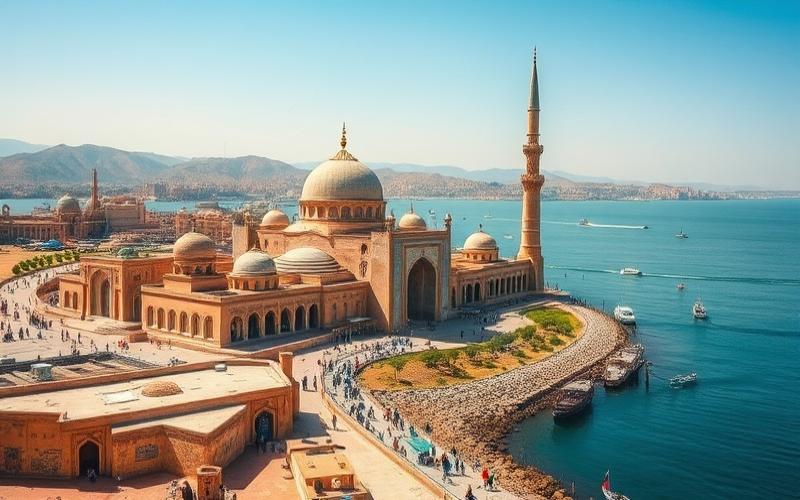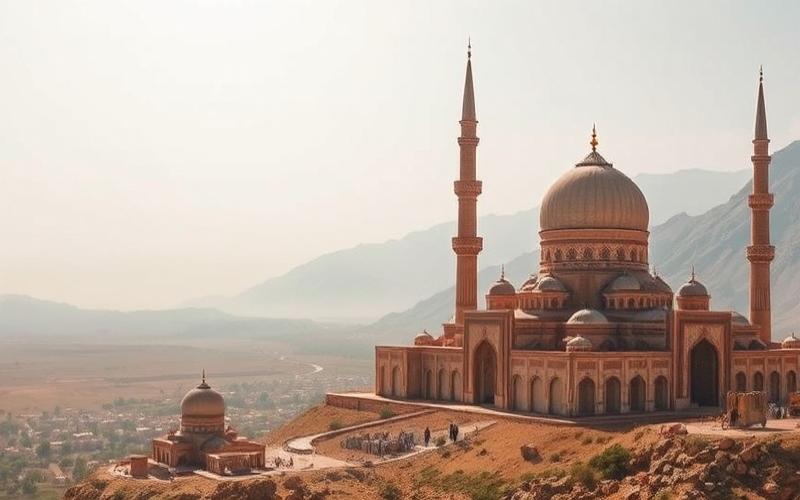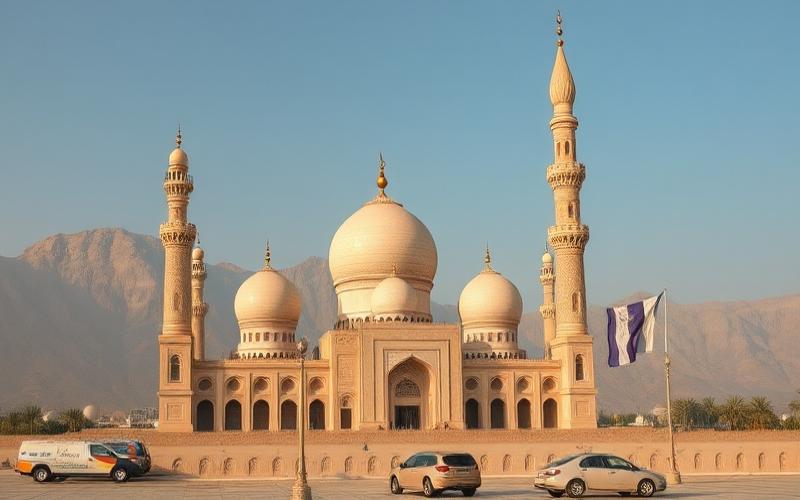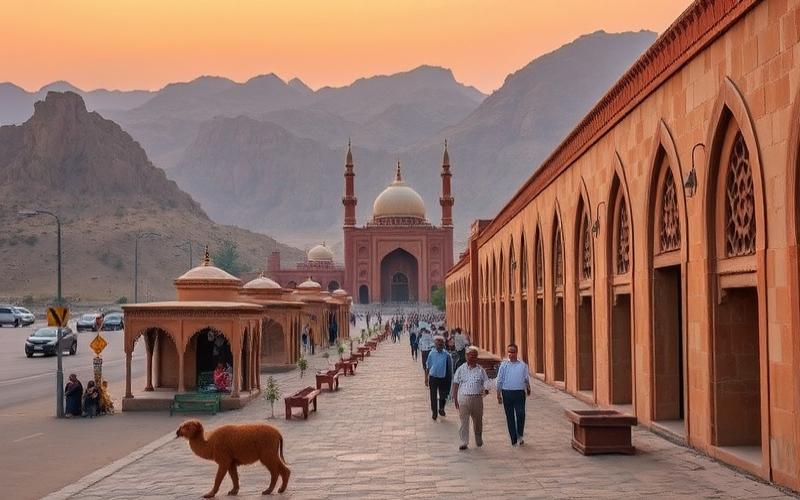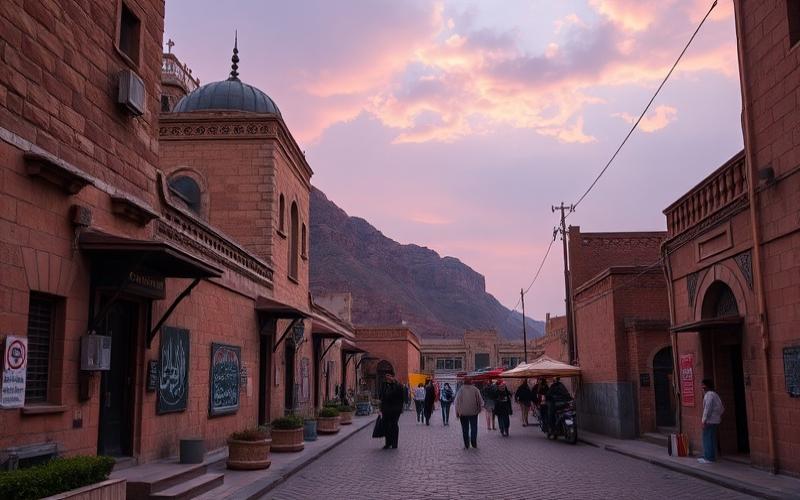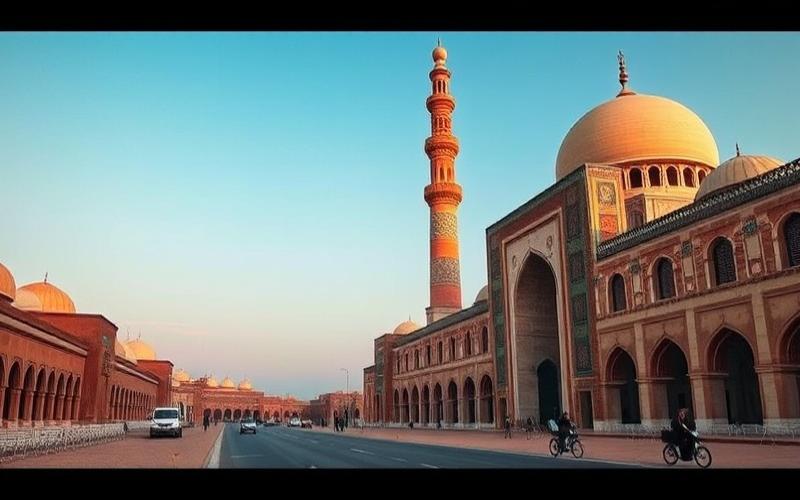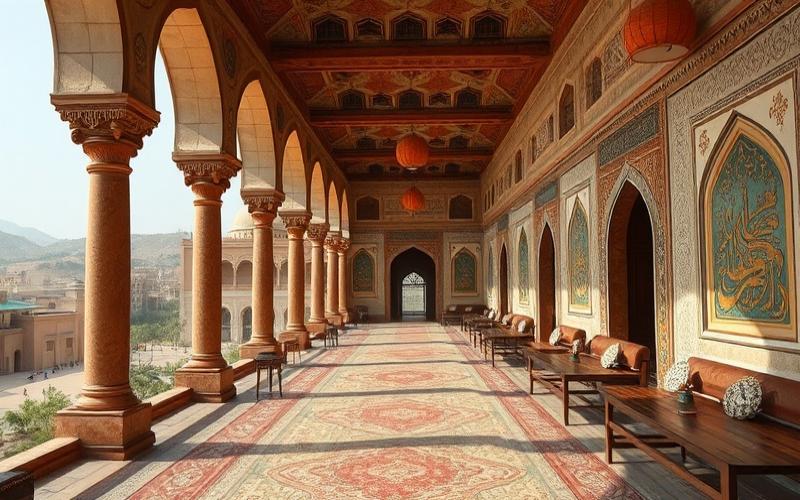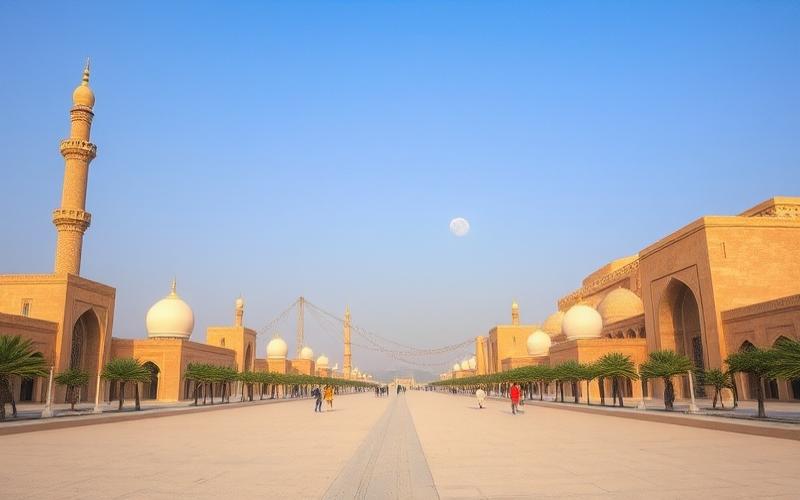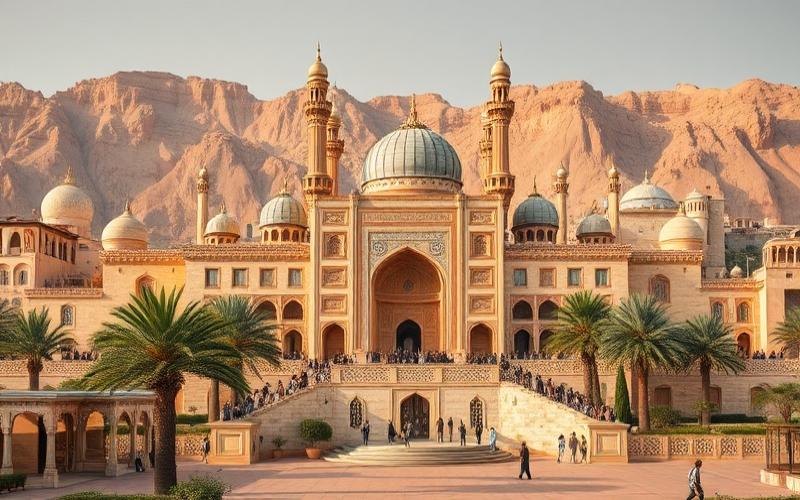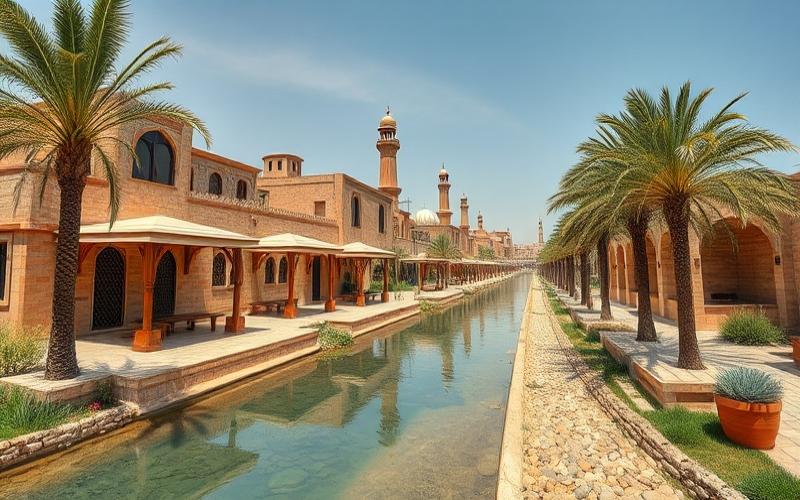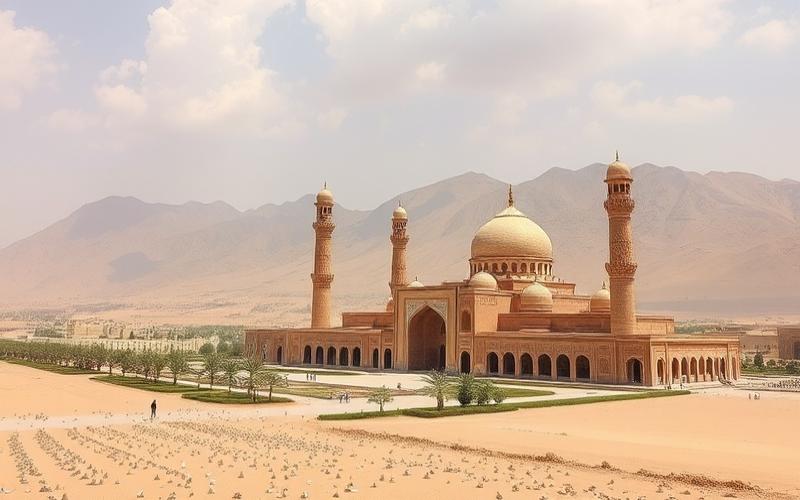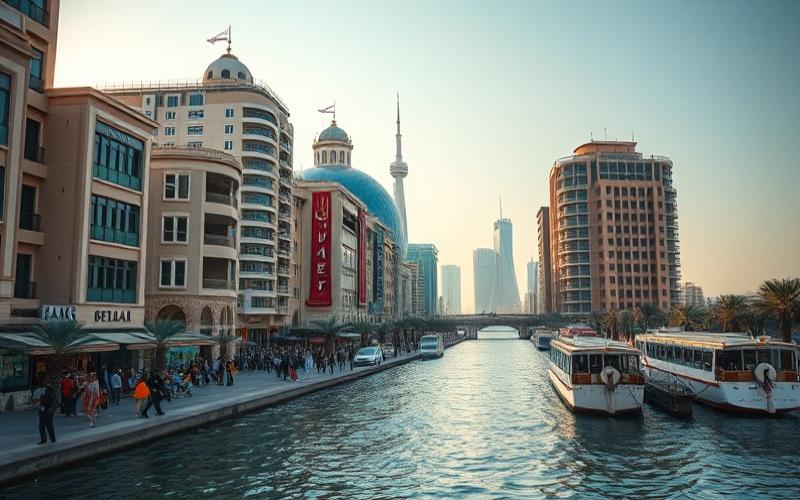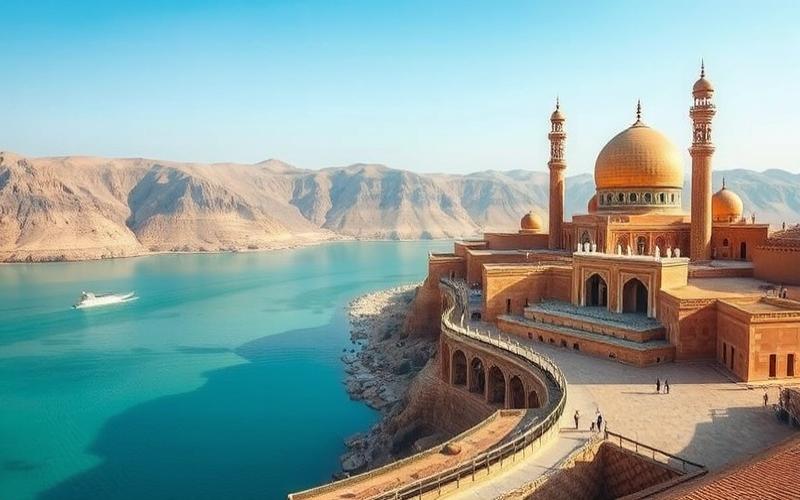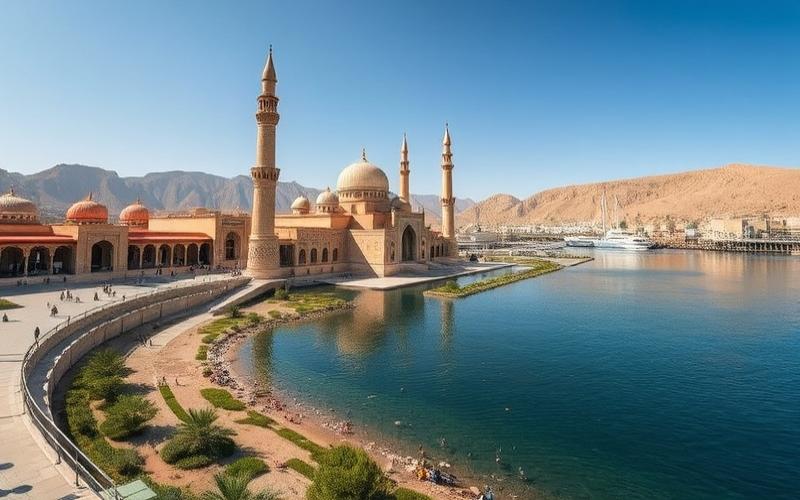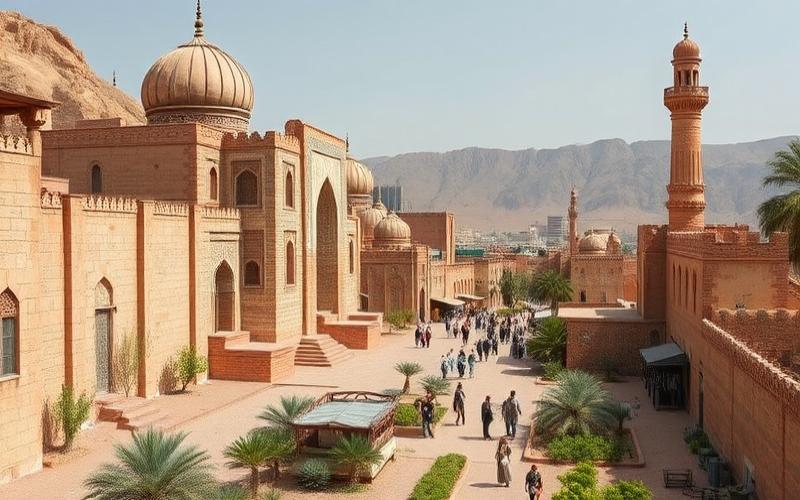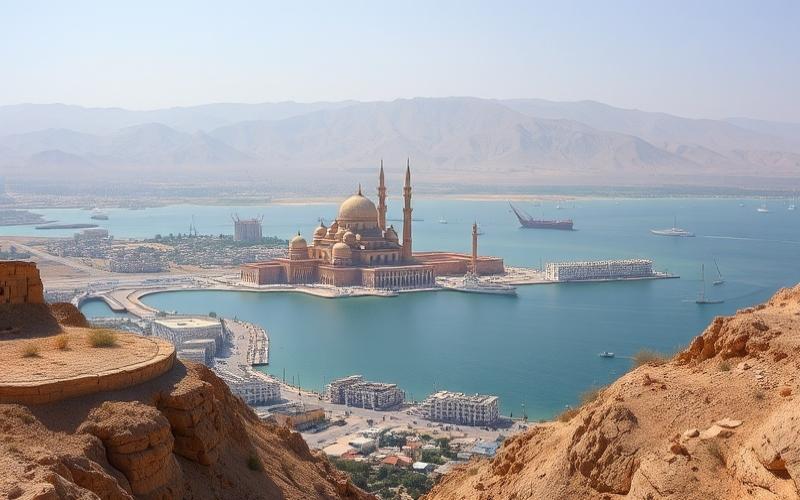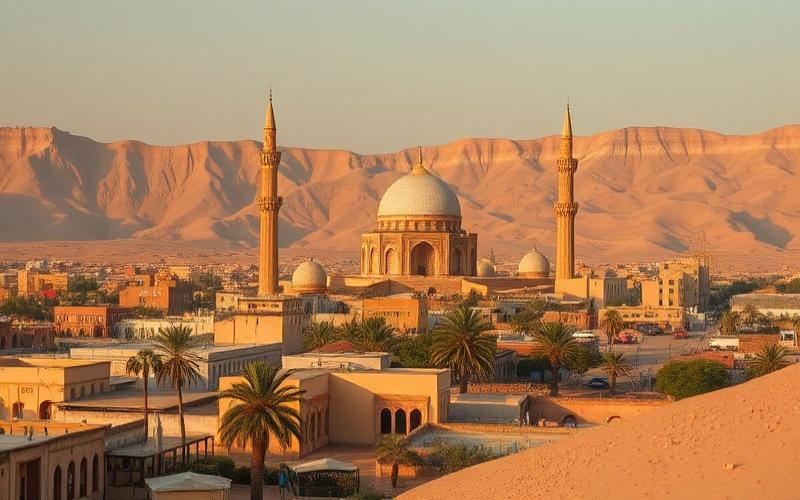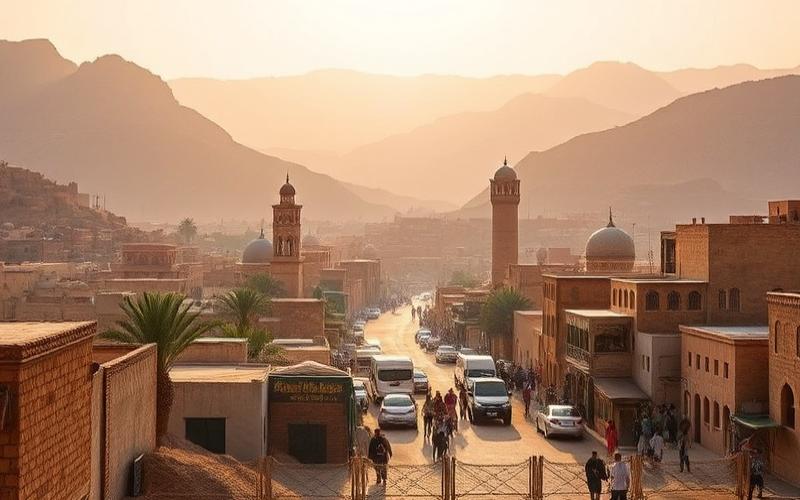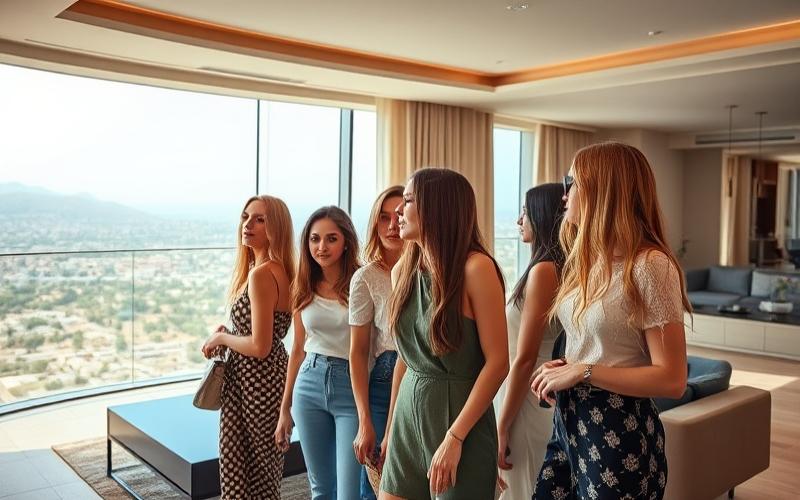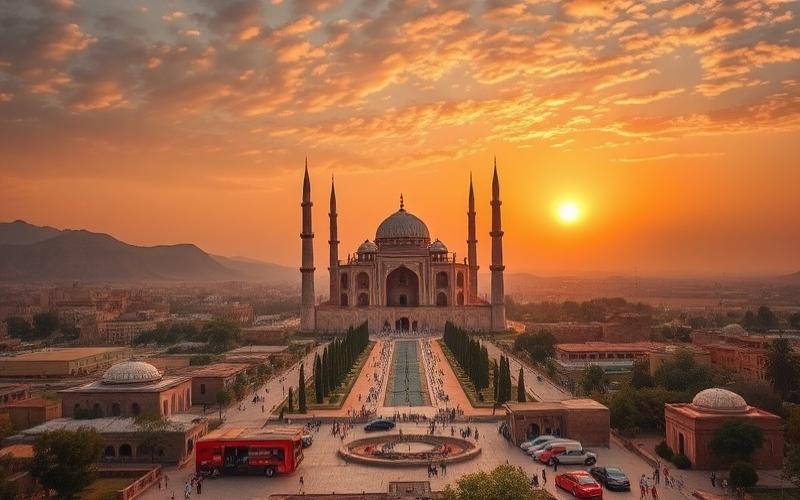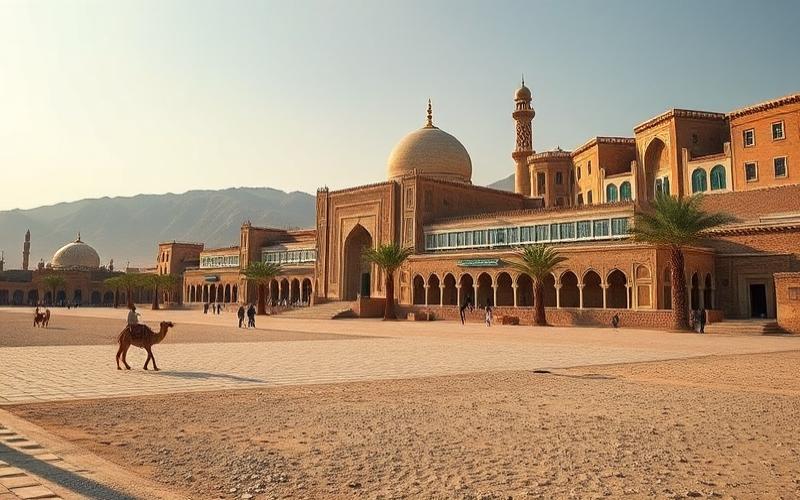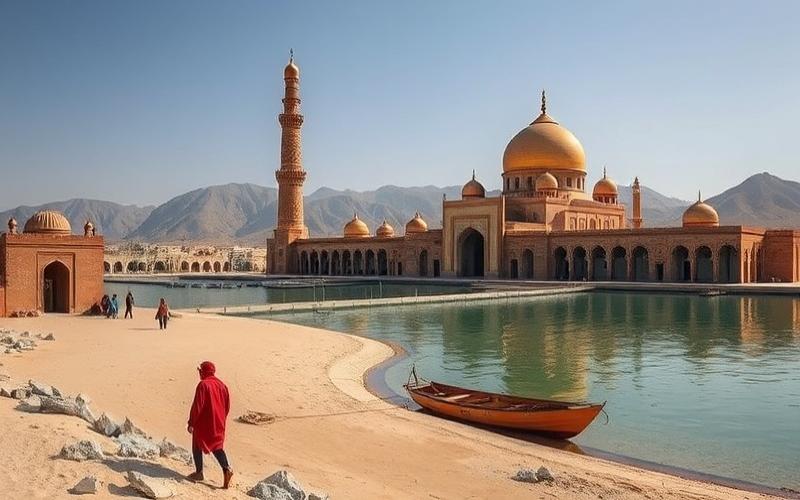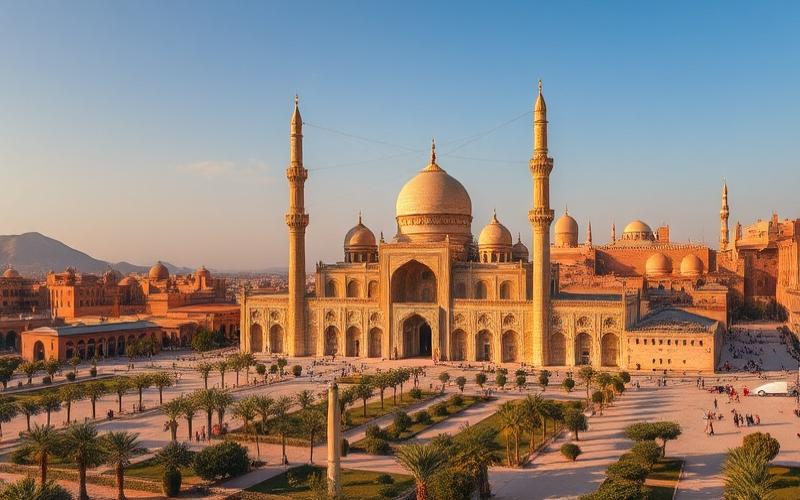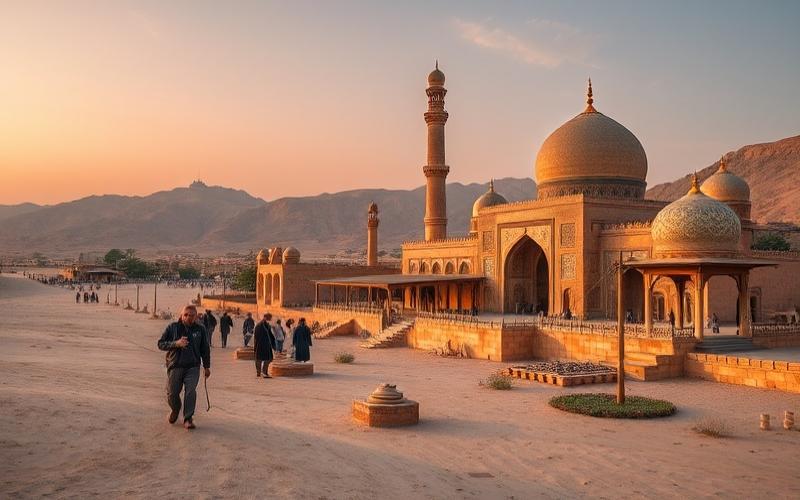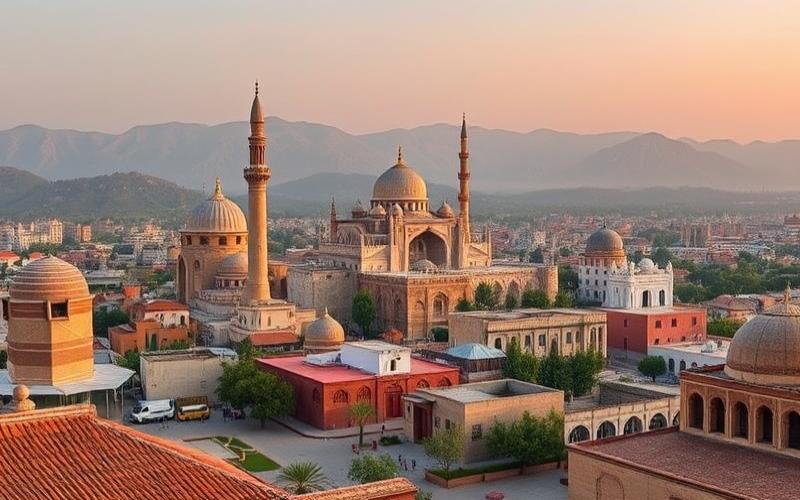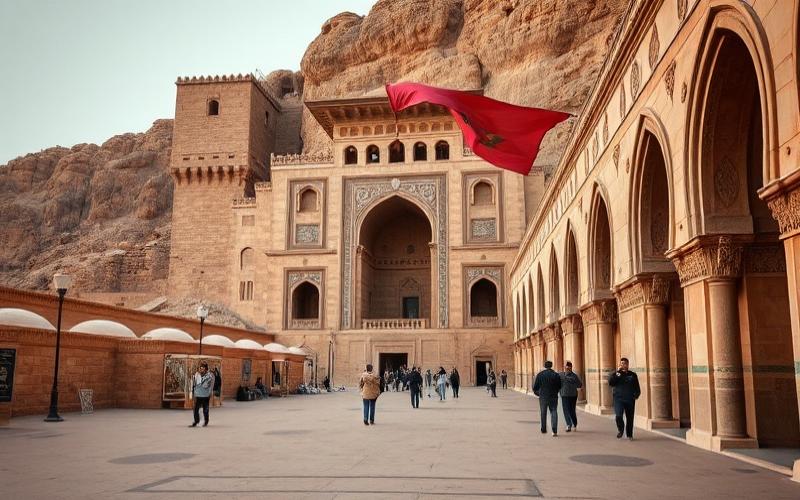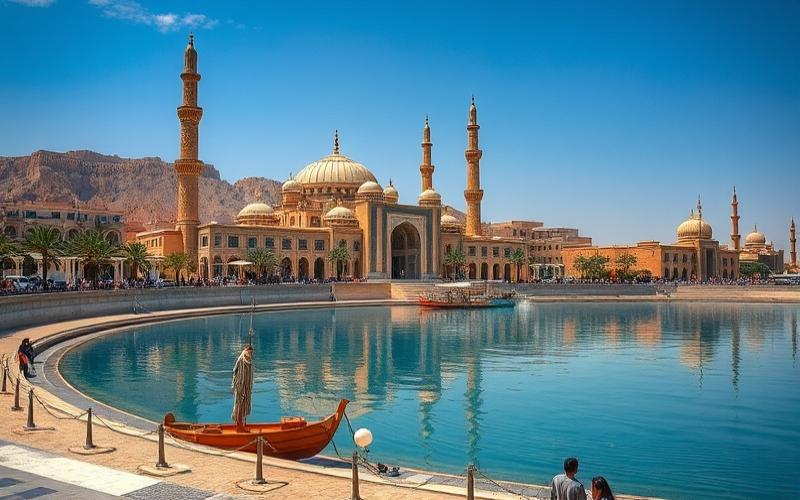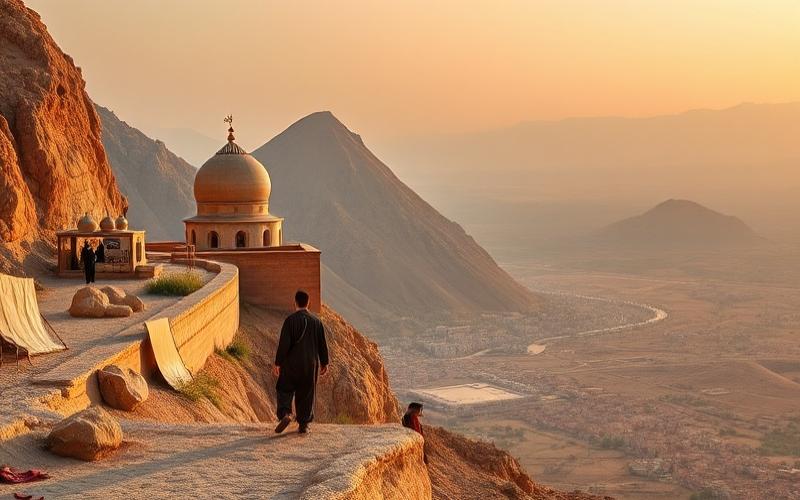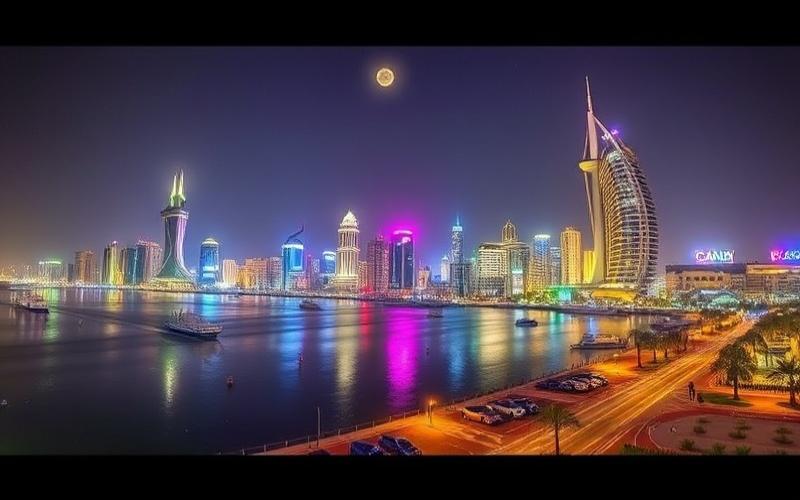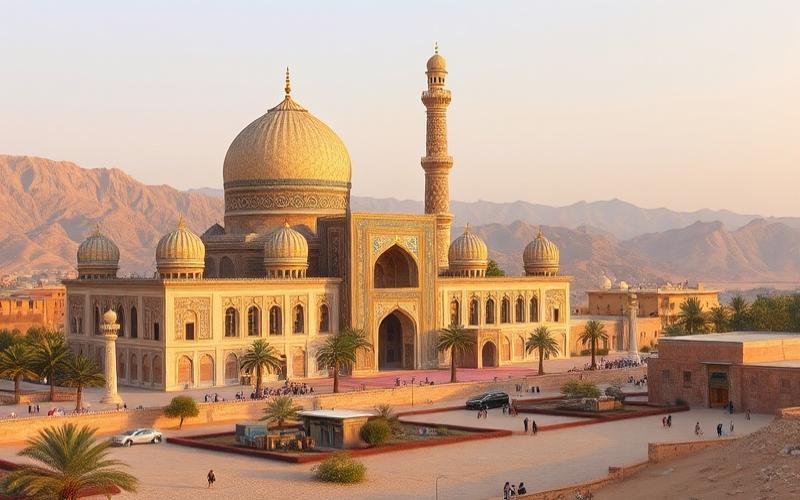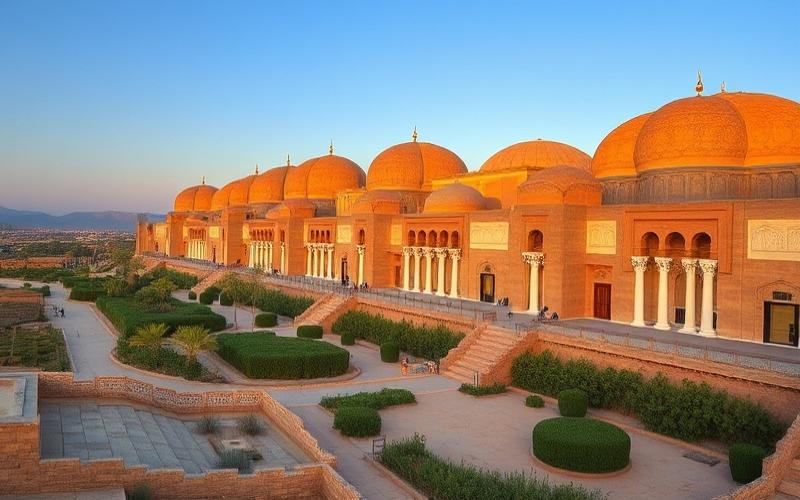
 Published on and written by Cyril Jarnias
Published on and written by Cyril Jarnias
Renovating a property in Bahrain presents a unique opportunity to blend traditional architecture with contemporary elements to create an extraordinary living space. Located in the heart of the Arabian Gulf, this island kingdom offers a captivating mix of culture, history, and modernity, providing an idyllic setting to transform a house into a peaceful haven.
However, understanding the nuances of the local real estate market and navigating specific urban regulations can be complex. Thanks to high-quality local materials and skilled labor, you can enhance your property’s value while respecting the local environment and climate.
Practical Guide for a Successful Renovation
In this article, we will guide you through the essential steps and provide practical tips to successfully carry out your renovation project and turn your home into a true desert gem.
Good to Know:
Bahrain offers high-quality local building materials like natural stone and wood, perfectly suited to the local climate.
Increase Your Property Value in Bahrain Through Renovation
The real estate market in Bahrain in 2025 is characterized by growing demand for secondary residences, increased attractiveness for foreign investors, and marked interest in free zones like Bahrain Bay, Amwaj Islands, and Juffair. This dynamic is supported by favorable legislation, reduced taxation, and the expansion of areas where foreigners can invest.
| Key Indicator | Trend / Value |
| Transaction Growth | 4.8% (2022) → 5.1% (2023) |
| Expat Share of Rentals | >70% |
| Average Villa Prices | +1.5% year-over-year |
| Entry-Level Property Prices | Starting at €125,000 |
Trends Influencing Renovation:
- The strong presence of expatriates and demand for modern properties drive property value enhancement through renovation.
- Smart city projects and the rise of health/wellness real estate promote the integration of modern and eco-friendly features.
- Families seek affordable housing, but well-renovated high-end properties attract premium tenants.
High-Return Renovations:
- Kitchens and Bathrooms: Modernizing these spaces significantly increases perceived value.
- Adding Eco-Friendly Features: Insulation, double-glazed windows, solar water heaters, or LED lighting appeal to tenants concerned about the environment and reducing energy costs.
- Open and Multifunctional Spaces: Adapting layouts for more flexibility meets the needs of expatriates and modern families.
- Connectivity Improvements: Installation of smart home systems, fiber optics, and smart security.
Practical Tips to Maximize Your Renovation Value in Bahrain:
- Select Quality Materials suited to the climate (humidity, heat), such as anti-humidity tiles or resistant paints.
- Prioritize Modern Finishes (designer faucets, integrated appliances, smart storage).
- Hire Local Professionals to ensure compliance with current building and urban planning standards in Bahrain.
- Obtain Necessary Permits before any work, especially in free zones or monitored residential areas.
Benefits of Renovations for Resale or Premium Rental:
- Renovated properties attract demanding international clients willing to pay higher rent or sale prices.
- The “move-in ready” aspect reduces vacancy rates and increases rental yield.
- Eco-friendly and technological renovations enhance property value in innovative neighborhoods like Bahrain Bay.
To optimize your property’s value in Bahrain, combine modernity, quality, and legal compliance to attract high-end buyers and tenants.
Good to Know:
To increase your property value in Bahrain, follow current real estate market trends that favor modern and eco-friendly renovations. Kitchen and bathroom improvements are particularly sought after, offering excellent return on investment. Integrating features like energy-efficient air conditioning systems and smart home technologies can attract premium buyers or tenants. It’s crucial to select quality materials, and hiring local professionals will help ensure renovations comply with local regulations. Well-planned renovations not only increase value but also enhance the potential for sale or rental at higher rates, appealing to a demanding audience willing to pay for high-end amenities.
Key Steps for a Successful Renovation in Bahrain
Prior Planning and Realistic Budget
- Establish a detailed budget considering Bahrain-specific costs, including:
- Imported Materials: often more expensive due to shipping costs and customs duties.
- Local Labor: assess rates and availability of skilled artisans and workers.
- Precisely define your needs and renovation goals to limit unexpected issues.
- Allocate a financial buffer to cover potential overruns related to imports or technical constraints.
Obtaining Permits and Regulatory Compliance
- Identify necessary authorizations and permits from local authorities (municipalities, urban planning agencies).
- Ensure the project complies with Bahrain’s laws and regulations regarding urban planning, safety, and the environment.
- Incorporate these administrative steps into the project’s timeline.
Considering Climate Challenges
Bahrain experiences intense heat and high humidity, which influence:
- Material selection: prioritize those resistant to expansion, corrosion, and mold.
- Construction techniques: adopt solutions for thermal insulation and ventilation.
Adapt the worksite organization to protect materials sensitive to extreme weather conditions.
| Climate Factors | Impacts on Renovation | Recommended Solutions |
|---|---|---|
| Heat | Material deformation, expansion | Resistant materials, proper insulation |
| Humidity | Corrosion, mold, rapid degradation | Ventilation, specific treatments |
Collaborating with Local Professionals
- Work with contractors and architects experienced in the Bahraini market.
- These professionals understand cultural requirements, local construction practices, and have a network of reliable suppliers.
- They also facilitate obtaining permits and ensure project compliance.
Effective Project Management
- Establish a detailed schedule including all renovation phases (preparation, execution, finishing).
- Implement regular monitoring methods:
- Weekly site meetings.
- Progress tracking dashboards and budget adherence.
- Schedule checkpoints to validate work compliance at each stage.
Rigorous planning, support from local professionals, and proactive management are the keys to a successful renovation in Bahrain, despite the specific challenges of the context.
Good to Know:
To succeed in a renovation in Bahrain, start with rigorous planning and establish a budget considering specific costs, such as imported materials and local labor. Ensure you understand local regulations and obtain necessary permits to guarantee compliance, which is essential to avoid fines and delays. Take into account Bahrain’s hot and humid climate when selecting materials and construction techniques to prevent premature degradation. Collaborating with local contractors and architects is crucial, as they possess in-depth knowledge of the market and cultural sensitivities. Finally, implement a detailed schedule and progress tracking tools to effectively manage your project and minimize unexpected issues.
The Practical Guide to Budgeting and Financing Your Renovation Project
Key Steps to Establish a Precise Budget for a Renovation Project in Bahrain
- Define the Project Scope
Assess the type of renovation: light (refreshing), intermediate (updating standards, bathroom renovation), complete (rearrangement, energy renovation), or heavy (structural work). - Estimate the Area to Renovate
Precisely measure the affected areas to obtain a reliable cost estimate. - Consider Specific Local Costs
- Labor: Rates vary by qualifications and sector (structural work, finishing, plumbing, electrical).
- Materials: Research local market prices. In Bahrain, imported materials may be more expensive; prioritize locally available materials to optimize the budget.
- Taxes: Include VAT (currently 10% in Bahrain) and other applicable taxes on construction and materials.
Compare Average Market Prices
| Renovation Type | Description | Average Cost per m² (BD) |
|---|---|---|
| Light Renovation | Painting, minor decorative work | 30 – 50 |
| Intermediate Renovation | Bathroom renovation, standard updates | 50 – 100 |
| Complete Renovation | Interior rearrangement, energy upgrades | 100 – 150 |
| Heavy Renovation | Structure, extension, load-bearing wall modifications | 150 – 250 |
Costs may vary based on material quality and project complexity.
- Obtain Precise Quotes
- Request detailed quotes from multiple suppliers and contractors.
- Compare included services (labor, materials, timelines, warranties).
- Specify brands, quantities, and finishes to avoid surprises.
- Verify the reputation and financial stability of providers.
Tips for Obtaining Reliable Quotes:
- Provide precise plans and specifications.
- Require a cost breakdown (labor, materials, equipment, miscellaneous fees).
- Negotiate payment terms and warranties.
Financing Options in Bahrain
| Financing Option | Advantages | Disadvantages | Eligibility Criteria |
|---|---|---|---|
| Traditional Bank Loan | High amount, fixed or variable rate, flexibility | Requires down payment, processing fees, guarantees needed | Stable income, banking history |
| Specific Renovation Credit | Tailored to work, sometimes advantageous conditions | Capped amount, limited duration | Work justifications, quotes |
| Public Grants or Aid | Reduces overall cost, supports green renovation | Subject to conditions, approval delays | Primary residence, ecological criteria |
| Zero-Interest Loan (if applicable) | No interest, accessible under conditions | Income cap, eligible work types | Income, work type |
Strategies to Track and Adjust the Budget
- Set Up a Tracking Table
- Track each expense by category (labor, materials, contingencies).
- Update the budget in real-time with each expense or new invoice.
- Allocate a Contingency Margin
- Reserve 10 to 15% of the budget to cover unforeseen events (delays, overruns).
- Conduct Regular Check-ins
- Monitor work progress and compare with the projected budget.
- Adjust categories if necessary, prioritizing essential expenses.
- Negotiate Staggered Payment Terms
- Limit cash flow risk and adjust financing based on worksite progress.
Key Takeaways:
A precise budget relies on obtaining detailed quotes, considering local specifics, and rigorous expense tracking. Studying financing options should account for your capabilities and market conditions in Bahrain.
Good to Know:
To establish a precise budget for renovating a property in Bahrain, start by estimating local labor costs and materials available on the market, considering relevant taxes. Consult multiple suppliers and contractors to obtain detailed quotes, allowing for price comparison and ensuring reliability. In terms of financing, explore options such as bank loans, which typically require proof of stable income, or renovation-specific credits, sometimes offered at preferential rates. Grants are also worth considering, though they often come with strict criteria. Each financing solution has its own advantages, like lower interest rates, but also drawbacks, such as complex approval procedures. Keep a close eye on the budget by recording all expenses and adjust it regularly to avoid overruns. Using financial management tools can also help maintain a clear overview throughout the project.
How to Choose the Ideal Materials for Your Property in Bahrain
Climate Factors Influencing Material Choice in Bahrain:
- Extreme Temperatures: Summer temperatures frequently reach 41°C, with an annual average of 28°C.
- High Humidity: Relative humidity generally ranges between 67% and 81% depending on the season.
These conditions promote premature wear of unsuitable materials, accelerate corrosion, and can deteriorate certain coatings.
Materials Commonly Used in Construction in Bahrain:
| Material | Advantages Specific to Local Climate | Potential Disadvantages |
|---|---|---|
| Reinforced Concrete | Resists high temperatures, structural stability | May be prone to cracking if poorly protected |
| Natural Stone | Low maintenance, excellent resistance to heat and humidity | More costly than other solutions |
| Weather-Resistant Coatings (special plasters) | Protect against water infiltration and UV rays | May require periodic renewal |
Limestone, in particular, is highly prized for its ability to withstand intense heat and humidity while requiring little maintenance.
Importance of Choosing Durable Materials:
- Opting for robust materials reduces long-term maintenance costs.
- This also limits frequent replacement due to degradation caused by extreme climate.
Environmental Impact and Eco-Friendly Recommendations:
Traditional concrete generates a high carbon footprint during production.
Natural stone is durable but its extraction can have a significant ecological impact if not managed sustainably.
Recommended options to reduce environmental impact:
- Prefer recycled concrete or recycled steel
- Use FSC-certified wood from sustainably managed forests
- Prioritize local materials to limit transportation
- Incorporate natural or bio-based coatings
Concrete examples:
– Major projects like Diyar Al Muharraq already integrate recycled steel, recycled concrete, and solar panels into their eco-friendly design.
Tips for Effective Collaboration with Local Experts:
Consult architects or engineers specialized in regional construction early in the project so they can propose solutions adapted to the specific climatic context.
List of practical recommendations:
- Involve a design office with proven experience in Bahrain’s climate from the start
- Seek advice on passive systems (natural ventilation, shading)
- Ensure all suppliers comply with local environmental standards
- Prioritize an integrated approach combining energy efficiency, material durability, and low ecological impact
Intelligently choosing materials with the support of local experts not only optimizes building performance against Bahrain’s extreme climate but also actively contributes to reducing its ecological footprint.
Good to Know:
To choose the ideal materials when renovating a property in Bahrain, it’s crucial to consider the local climate characterized by high humidity and extreme temperatures. Materials such as reinforced concrete and natural stone are commonly used because they offer superior resistance to weather conditions. Opting for durable coatings that require little maintenance, like those resistant to corrosion, can significantly reduce long-term costs. It’s also important to consider the environmental impact of your choices: prioritizing certified wood or recycled materials contributes to the project’s sustainability. Collaborating with local construction experts is advised to obtain tailored advice and make informed choices that harmonize with the regional context.
Disclaimer: The information provided on this website is for informational purposes only and does not constitute financial, legal, or professional advice. We encourage you to consult qualified experts before making any investment, real estate, or expatriation decisions. Although we strive to maintain up-to-date and accurate information, we do not guarantee the completeness, accuracy, or timeliness of the proposed content. As investment and expatriation involve risks, we disclaim any liability for potential losses or damages arising from the use of this site. Your use of this site confirms your acceptance of these terms and your understanding of the associated risks.

